Leading the Charge for America’s Wild Horses on Capitol Hill: NBA/NFL Celeb. Bonnie-Jill Laflin: ‘[Politics] won’t stop us from fighting’
(EnviroNews California) — Round Valley Regional Preserve, Contra Costa County, California — Bonnie-Jill Laflin is one of America’s favorite female sports sweethearts. But for more than a decade, she’s been using her popularity and celebrity appeal in a quest to save an American icon: the country’s wild horses. She’s had a storied career in the realm of men’s professional sports — and that story continues to be written. After being a cheerleader for the Dallas Cowboys and San Francisco 49ers and a dancer with the Golden State Warrior and LA Lakers, she made a huge leap: breaking the glass ceiling, Laflin become the NBA’s first female talent scout and first female front-office executive, achieving both milestones with the Lakers. She gathered six championship rings spanning both the NFL and NBA — not a bad collection even next to Tom Brady’s Super Bowl ring bling. Today, she’s also a sportscaster with CBS Sports. But for Laflin, horses come first, quite literally. That notion can even be seen by her founding of a project called Horses First. Laflin sat down with EnviroNews Editor-in-Chief Emerson Urry in Northern California to discuss various equine topics and to go in-depth on the subject of America’s wild horses and her efforts to protect them.
For Laflin, horses are etched into many of her earliest memories. “Horses have been a part of my family before I was even born,” she said. “It just kind of came naturally that horses would [continue to] be part of my life.” She’s even been a competitive barrel racer in the rodeo.
Laflin has been an advocate for America’s horses since at least 2009, when she first became involved with peaceful political activism surrounding equestrian issues. Her fight focuses on several key areas: the humane treatment of wild and domestic horses as well as getting rid of the controversial Bureau of Land Management (BLM) wild horse roundups that many critics say are inhumane.
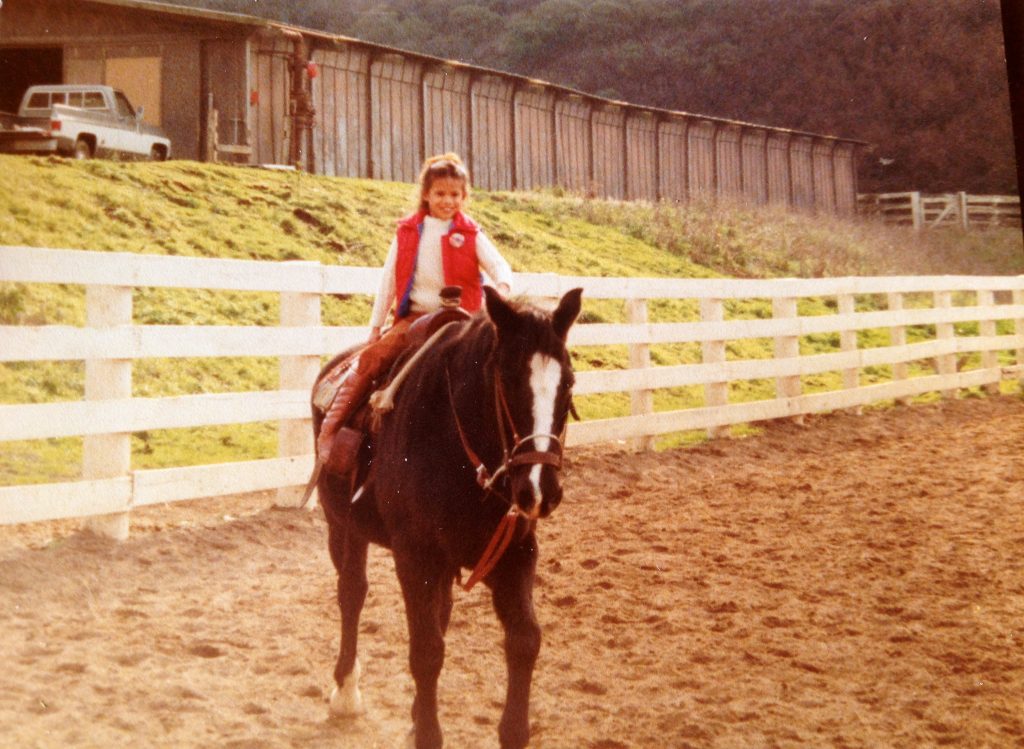
One of her biggest fights is for the SAFE Act — federal legislation that, if passed, would prevent the horse-slaughter industry from reestablishing operations in the U.S., while prohibiting the export of American wild horses for slaughter. She’s also engaged with promoting humane treatment for the creatures under the Wild Horse and Burro Program — a BLM-run operation that maintains the goal of managing healthy wild horses and burros on public lands.
The BLM’s official position reads as follows:
The BLM manages free-roaming wild horses and burros on public lands as part of its multiple-use mission, with the goal of supporting healthy wild horses and burros on healthy public rangelands. The BLM is responsible for determining and maintaining appropriate management levels (AML) for each herd and works to achieve that population target through a variety of management processes, including limiting reproduction in some herds through the use of birth control and gathers that remove excess animals from the range.
However, the Wild Horse and Burro Program is a politically fraught and complex initiative. Proponents of the program argue that wild horses should not take precedence over cattle and other livestock when it comes to public land access, while some critics of the program say that the United States was essentially “built on the back of the wild horse,” therefore they should have freedom on public lands. Still, others argue that were it not for the roundups, the wild horses would struggle to find food in different resource-depleted areas. There is also a great deal of controversy surrounding the roundups and what happens to the horses once they are corralled and removed from public lands by the BLM. Horse advocates point to intentional euthanization and accidental death and suffering as reasons these events should be stopped.
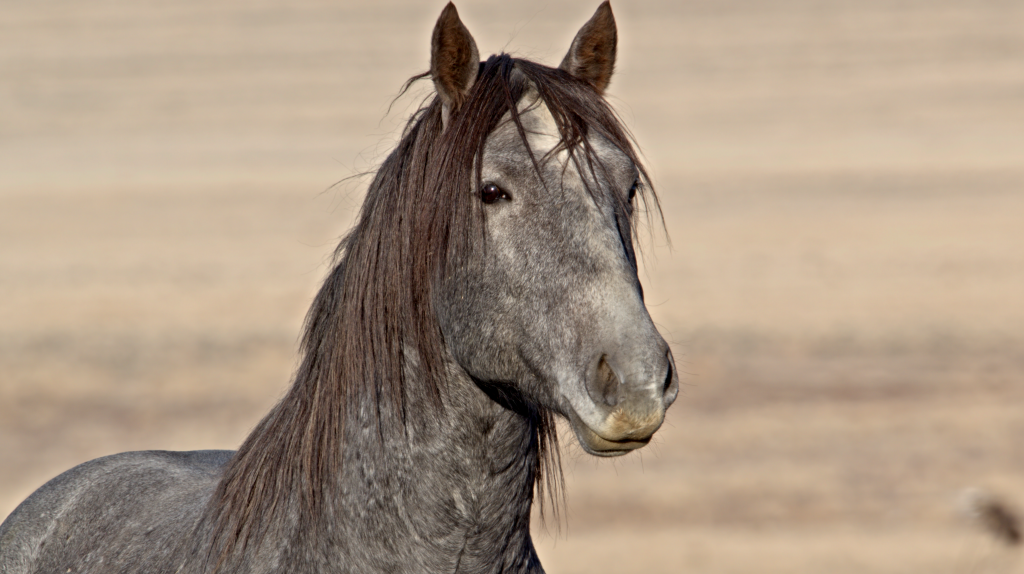
One of the solutions presented by some experts is the use of porcine zona pellucida (PZP) — a birth control drug that sterilizes the mares through injection via remote darting. The goal of this approach is to keep the horse populations at a manageable level. On the other hand, one camp of wild horse advocates believes the use of PZP is inhumane and that the horse herds shouldn’t be bothered.
In an ideal world, Laflin notes that wild horses would be left alone. However, if horses multiply unchecked, under the current BLM policy, that would lead to further roundups. In 2022, the BLM is already in the process of rounding up and removing over 22,000 specimens, which will represent the largest number of the animals ever roped in by the government in a single year. Still, Laflin told EnviroNews she believes the use of PZP sterilization is essentially the lesser of two evils and that using the drug helps avoid more horse gathers. She says that this solution, while less than perfect, would satisfy multiple interests to some extent: protect the wild horses while still respecting cattle rancher activities. Her approach is twofold: sterilize mares so that populations are kept in check while working to find homes for horses that remain log-jammed in BLM holding facilities.
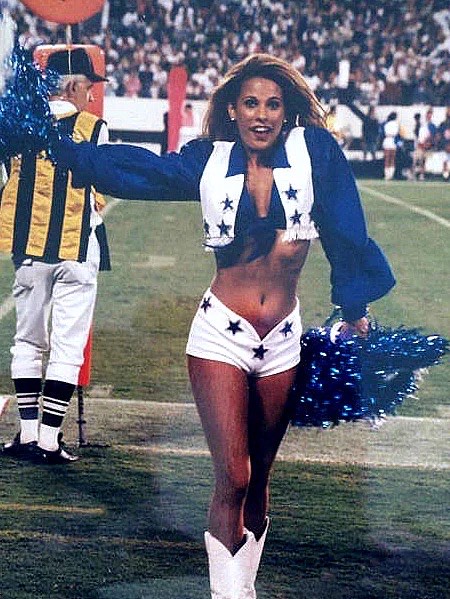
She cited statistics regarding the thousands of horses she and other advocates have helped rescue. “We take these horses for equine therapy for disabled children, veterans [and] women who are domestic violence survivors,” she said, also noting that some sympathetic ranchers do offer space for wild horses on their land as well.
For Laflin, advocacy is about coming up with solutions that offer compromise rather than driving a wedge even further between opposing groups. “The main thing is that people complain, complain, complain; you have to give solutions, and we have given solutions,” she asserted. “That is the biggest thing that we’re trying to do: after they round them up — which is [in] these horrific helicopter roundups — [the key is to tell the BLM and lawmakers] that we have a solution.”
BLM Helicopter Chasing Wild Horses into a Trap-Site at the Sulphur HMA Roundup — Video: Katherine Fulwider — for: EnviroNews Nevada
“People don’t realize it’s great to do protests — to continue to try to be a compassionate person, but the way things get done is you have to, unfortunately, go on [Capitol] Hill and that’s how changes are really made, as frustrating as it is,” Laflin explained.
She continued in her interview with Urry by adding this:
All these bills are bipartisan — so both sides of the fence — you’d be shocked — and I’m going to say it — at how corrupt it can be… It’s just frustrating, so we’re going to keep plugging away. We keep lobbying. I’ve talked to so many congressmen, and obviously on the Senate side as well to try to get this done. And we always think we’re really close. We’ve always got great congressmen that sponsor the bills, but then sometimes we’re just short and then it never even goes to the floor.
Laflin is not alone in her advocacy efforts. She noted that in addition to bipartisan support in the House and Senate, high-profile celebrities such as Ed Harris, Willie Nelson, Robert Redford, and more have joined the fight at lobbying events called Horses on the Hill.
Laflin Has Interviewed Bob Baffert and Horse Racing’s Biggest Names as a Sportscaster
One thing that sets Laflin apart from some other animal rights activists is that she always aims to keep her advocacy efforts peaceful and respectful. In those regards, she told EnviroNews this:
I’ve been told so many times by congressmen and senators that animal activists, they yell and scream. That doesn’t do anything. They say out of all the different things that they deal with for different legislation, they say it’s the animal legislation that’s the hardest because they get phone calls from all their different constituents screaming at them. It’s great to be passionate, but do you know what I’m talking about? It’s all about their approach. If someone was walking by and started screaming at you — and keeps screaming at you, are you just going to be like all uh [whatever]? No, a lot of people are going to scream back. That’s how you defend yourself.
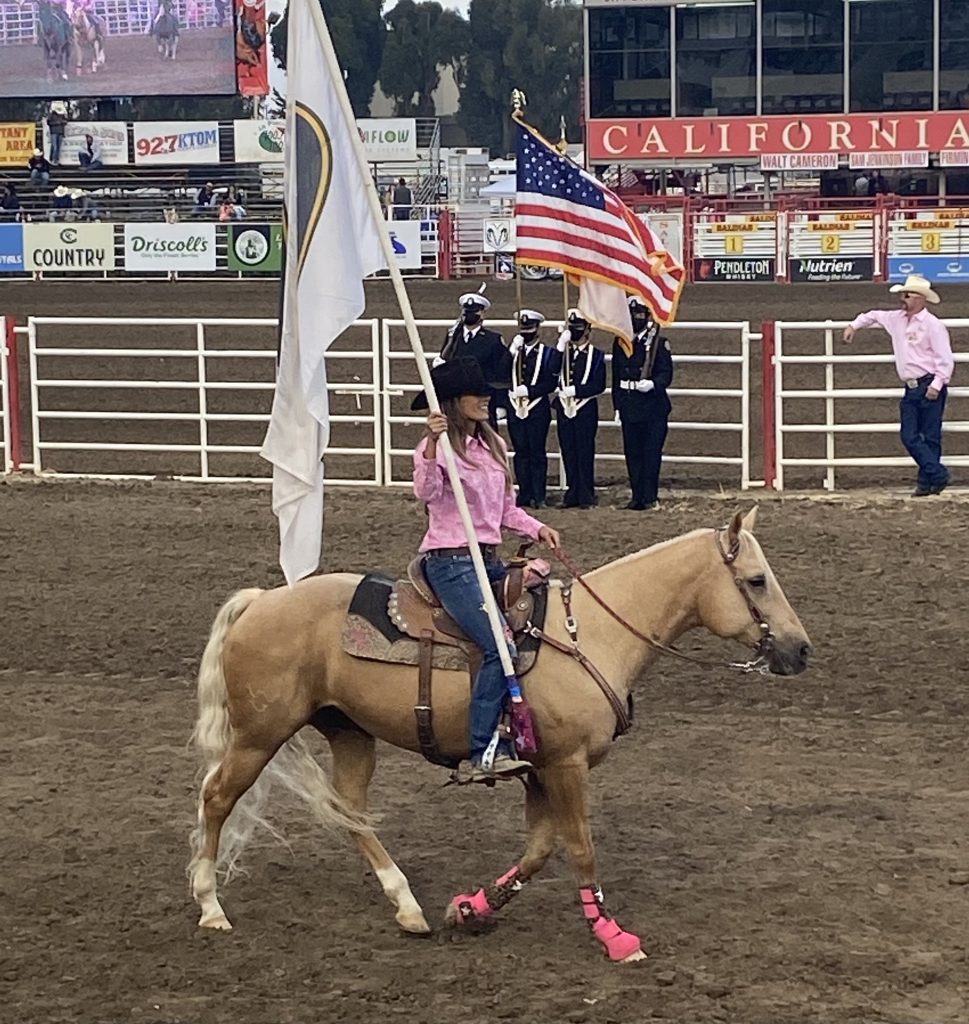
While Laflin noted that politics involves a great deal of give-and-take, she also pointed out that it can be frustrating — especially as the COVID-19 pandemic slowed down progress on wild horse legislation. On that topic, she told EnviroNews this:
So, we’ve got to just keep pushing away. I know that people support what we do — like I said, both sides — but it’s just an uphill battle. And to be honest with you, sometimes we wonder if it will [ever] get passed. But that won’t stop us [from] fighting… That’s the biggest thing with the wild horses is to push, push, push.
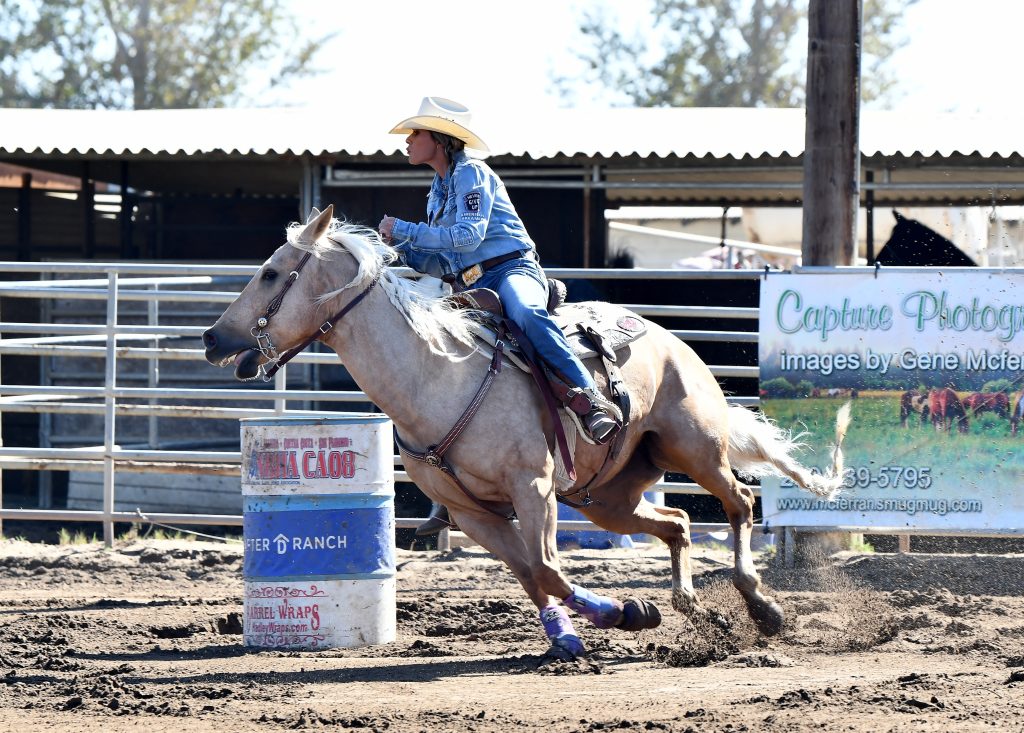
Laflin recommended that people who wanted to support the Wild [Free-Roaming] Horses and Burros Act and the SAFE Act reach out to the key players: the Department of the Interior, their local congressman, and other legislators. Laflin summarized her point of view by simply stating this:
These horses have been there. When you think of America, you think of the wild horses. They go back thousands and thousands of years. They were here before us and they’ve been able to roam and [been] able to defend themselves, [and] able to live off the land. So, for [people] to say that they’re starving; all that is a bunch of crap.
More segments from this EnviroNews feature story series with Bonnie-Jill Laflin can be viewed in the embedded story links near the bottom of this page. The transcript to this article’s main video atop this page reads as follows:
Emerson Urry: So let’s talk about horses. You’ve got a lot of history there as well. And again, my daughter was telling me on the way down, something about [how] you were riding before you were walking. I can relate. My dad actually used to break horses for cash and I can remember getting thrown on a seventeen-hand thoroughbred when I was like three or four years old… horses were the way. So, I get it.
Bonnie-Jill Laflin: Oh, okay. So, you know!
Urry: But, tell me about your connection with horses. And what is Horses First? Give it a plug.
Laflin: Going back to a small age, I was riding horses before I could walk, literally. Horses have been a part of my family before I was even born. So, it just kind of came naturally that horses would be part of my life and [that has] stayed until now. I’ve rescued horses to this day and I fight for them, when it comes to anything. I’ve been working on the SAFE Act, which is the ban-horse-slaughter [bill]. I’ve been working on that on Capitol Hill since 2009, which is good, but it’s actually sad to say that we’re still trying to work to get this bill passed.
[It’s] the same thing [with] the Wild Horses and Burros Act. I’ve been working with Return to Freedom, and I lobby with Chris Hyde — who’s a big animal lobbyist — and we lobby and we fight for these animal rights, because people don’t realize: it’s great to do protests — it’s great to do all of that — to continue to try to be a compassionate person — but the way things get done is you have to, unfortunately, go on [Capitol] Hill, and that’s how changes are really made.
Urry: Yeah.
Laflin: And as frustrating as is, and all these bills are bipartisan — so both sides of the fence — you’d be shocked — and I’m going to say it — at how corrupt it can be. There’s a lot of times when we think we’re going to get this bill passed and then all of a sudden it’s like: no, that person owed that person a favor; that person loves horses, but they don’t care. I probably don’t have to tell you that.
Urry: Mm hm.
Laflin: It’s just frustrating, so we’re going to keep plugging away. We keep lobbying. I’ve talked to so many congressmen, and obviously on the Senate side as well to try to get this done. And we always think we’re really close. We’ve always got great congressmen that sponsor the bills, but then sometimes we’re just short and then it never even goes to the floor.
So, we’ve got to just keep pushing away. I know that people support what we do — like I said, both sides — but it’s just an uphill battle. And to be honest with you, sometimes we wonder if it will [ever] get passed. But that won’t stop us [from] fighting.
Urry: So, you know, you kind of took my segue for me there into wild horses. Let me back up a little bit and just ask you [something]: It’s a politically fraught issue, it’s complicated. There are different trains of thought. There are different camps.
Laflin: Mm hm. Yeah.
Urry: There’s one camp — maybe they’re environmental purists — and they say: well, it’s debatable whether it’s even an indigenous species here, so it shouldn’t be out there. There’s another camp that says basically: hey, this country was built on the back of the wild horse and there used to be two million of them and I can take them over cattle any day. So there’s that camp.
Laflin: Exactly. Yeah.
Urry: And then of course, there’s the camp that’s like: oh, they suffer and starve in the winter and so we gotta get them all out of there or only have a few. Where do you come down [on that issue]?
Laflin: Well, that last one that you said is B.S. We know that. I would say the second one that you said. These horses have been there. When you think of America, you think of the wild horses. They go back thousands and thousands of years. They were here before us and they’ve been able to roam and [been] able to defend themselves, [and] able to live off the land. So, for [people] to say that they’re starving; all that is a bunch of crap. The BLM — I should say the Bureau of Land Management — they always give us a hard time because we come up with solutions.
The main thing is like, people complain, complain, complain. You have to give solutions and we give solutions. Now we’re trying to do this fertility control where we would dart the horses — the mares — and so they wouldn’t be able to produce, obviously, because they’re always talking about the overpopulation.
So, that is the biggest thing that we’re trying to do: after they round them up — which is [in] these horrific helicopter roundups — [the key is to tell the BLM and lawmakers] that we have a solution. Plus, every time we go into different offices of these Congressmen or we’re talking to the staffers or [their] chief of staff, it’s like, we’re giving them tons — I mean, I’m talking thousands of rescues — that would take these horses for therapy — for equine therapy for disabled children, for veterans, for women who are domestic violence survivors…
Urry: And there’s a big backlog now right?
Laflin: Oh, yeah. And so, it’s not to say we don’t have a place for them. I’ve had one Senator who told me, “You know, if we do that, then they’ll be walking through DC if we don’t start to kill them.” It’s like, no, come on.
Urry: Right. They always say they’re going to come into the urban interfaces.
Laflin: [Yes,] come into the cities; yeah, horses aren’t doing that. You know, those wild horses — if you’ve seen them and the mustangs — they like to stay, actually away from people. So we’ve given them a lot of solutions and ways. The biggest thing is we’re always looking for landowners that have — not a couple acres — we’re talking about thousands of acres that they can take a small herd of horses [onto] to help, because sometimes they end up in these roundups and then you know what happens.
Urry: Who are the big players there, like Ted Turner, or who do you go to?
Laflin: That’s the thing, there’s not. We’ve got some rich oilmen in Texas that help us and there’s some others that have some horse ranches that are in the racehorse industry that have helped us. I mean, there’s a lot; you’d be shocked. Even some people in rodeo have actually helped us take some of these horses and then they break them, and they’re able to use them for [recreation]. Some people may not like that, because they’re not putting them back into the wild. They’re breaking them and making them horses that people ride. But they’re still in a better situation than they would be.
So, there’s a lot of different ways and solutions that we have, but the BLM always seems to cut corners — [they] say they want to do it, then say it’s too expensive. No, if you really look at what we’re trying to do, it’ll save money by using the fertility control with these horses.
Urry: The PZP right? Is that what they use?
Laflin: Exactly. Yep.
Urry: This whole strategy of the BLM, or really the Department of the Interior at large…
Laflin: Yep, that’s the big one.
Urry: …and saying, the way to manage these animals, in the case of wild horses, they designate these HMAs and they say: oh, we only want 25,000 or 50,000 of them out there.
Laflin: Mm hm.
Urry: Is that completely bassackwards in your view? Should they take that approach at all? Obviously, all of the land is getting gobbled up.
Laflin: Well, right. I guess the biggest thing is sometimes I’ve learned over the years spending time lobbying on the Hill is that you have to sometimes come to somewhat of an agreement. Maybe it’s not going to be exactly what we want, right? You know this. But we have to meet. So, there are times where we don’t agree with what they’re saying, but if they’re going to give us a little and be able to work with us on the solutions that we have and the PZP, and different ways to get the horses that are rounded up and bring them to different sanctuaries, and then allowing us to, then we have to meet them halfway with certain things. So, do I agree with that? A lot of activists and advocates will say: well, why did you guys agree to that?
Urry: Right.
Laflin: Because it’s either that or nothing. So, at that point we have to agree on something.
Urry: Politics is all about compromise.
Laflin: Yeah. And that’s what we try to be. As much as I am an advocate, I still know that you have to be reasonable and approach is everything. You can’t go into an office when you’re lobbying and start screaming at people and say: I want this or that, or just the same thing. Ive always been told that. I’ve been told so many times by congressmen and senators that animal activists, they yell and scream. That doesn’t do anything. They say out of all the different things that they deal with for different legislation, they say it’s the animal legislation that’s the hardest because they get phone calls from all their different constituents screaming at them.
Urry: Passionate people.
Laflin: And it’s great to be passionate, but do you know what I’m talking about? It’s all about their approach. If someone was walking by and started screaming at you — and keeps screaming at you, are you just going to be like all uh [whatever]? No, a lot of people are going to scream back. That’s how you defend yourself.
Urry: Yeah.
Laflin: So, that’s always why when we go into these offices, I try to be like: okay, I get where you’re coming from, but this is [how it is]. I try to just be a little bit more passionate, but not so vocal and screaming.
Urry: Work through the channels?
Laflin: Right. I kind of just now, at this point, know how I have to be whether it’s sometimes a little bit of an act. Because there are times where, of course I go in there and I go, “Well, thank you so much, Congressman.” But when I walk out, I go, “What a fucking asshole.” You know what I mean?
Urry: Yeah (laughs).
Laflin: But you have to play the part I guess is what I’m trying to say. And I’ve gotten a lot more — and not just on the Hill — but in all my advocacy, and being an advocate and an activist, I think I’ve gone a long way by that approach, if that makes any sense.
Urry: So, speaking of the Hill and doing that work, I don’t know if you work with Congressman Grijalva? I know he’s written some letters, but as you know, it’s like the battle continues over years and administrations, I get that. But, is there anything right now that we should be watching for in any of the appropriations committees or the Natural Resources Committee? What’s going on currently?
Laflin: Right now, everything kind of changed and got put to a halt because of COVID. As you know, they all went on recess more than normal because of COVID and a lot of them are working from home. Like, we’re not even really allowed. We can [go in] but we have to set up meetings [using] FaceTimes and [Zoom], or sometimes we can go in, which I don’t think it’s as effective [as in-person lobbying] when you’re doing a Zoom, because as we all know, [they] could be doing other things [at the same time]. Sometimes they even turn off their camera, which I know that means they’re doing other things. Nothing is better than being in the office. So, right now we haven’t been able to lobby as much as we have [in the past], but we are just really trying to push for this fertility [control]. That’s the biggest thing with the wild horses is to push, push, push. And so, I always just keep telling people: yes, you can call the Department of the Interior [and the] BLM, but you have to call your local congressman, your legislators. That’s who you have to call and just tell them: hey, support this; support the Wild Horses and Burros Act and the SAFE Act — because they go hand in hand. The majority of those wild horses end up in slaughter and kill-lots.
Urry: Right. So, talking about the “we” and talking about the lobbying, there was quite a star-packed coalition that was involved with this. I know that goes back over some years as well. Is that coalition still together? Is it still tight?
Laflin: Are you talking about Horses on the Hill?
Urry: I don’t know. Tell me about that.
Laflin: Yeah, well, Horses on the Hill, we still do that.
Urry: I saw Ed Harris and Willie Nelson.
Laflin: Yes, it’s still [together]. Robert Redford, Willie Nelson, there’s so many different big activists that support us. [Horses on the Hill], the name speaks for itself. We go and different [celebrities] and musicians, you name it — people that are big in the public eye are able to talk about their stories from rescuing horses to [what] they are doing now, and what we can do, and try to encourage [lawmakers]. You’d be surprised how much a celebrity voice goes a long way up there on the Hill.
Urry: Indeed.
Laflin: I don’t know what it is, but they get very enamored and they get really excited. There’s so many times where I’ve walked into [their] offices and they go: the congressmen can’t meet with you. And then they tell them who I am and then he’s like: oh my God, I’m a big sports fan; I’ll pass up those calls. And then he wants to meet and talk. And then all of a sudden I tell them how passionate I am, [and he’s] like: let me look into this more; I kind of had other things I was looking at. And they do. It does actually help when Bo Derek is on the Hill. Unfortunately, they should just know what’s right or wrong, right? But no, unfortunately, it does influence them when you’ve got an athlete, musician, or some type of celebrity — someone with notoriety — who comes in and tells [them]: I feel passionate about this, let’s make a change, and why.
OTHER STORIES FROM THIS ENVIRONEWS FEATURE STORY SERIES WITH BONNIE-JILL LAFLIN:
NFL/NBA Sports Celeb. Bonnie-Jill Laflin Explains Being an Animal Rights Advocate ‘Right out of the Womb’ – EnviroNews | The Environmental News Specialists
(EnviroNews California) – Round Valley Regional Preserve, Contra Costa County, California – Bonnie-Jill Laflin may be one of the most recognized women in men’s sports, having gained notoriety in both the NBA and NFL.
RELATED NEWS FROM ENVIRONEWS:
NFL/NBA Celeb Bonnie-Jill Laflin Dunks on Cattle Ranchers at Protest to Save Point Reyes Tule Elk – EnviroNews | The Environmental News Specialists
(EnviroNews California) – San Francisco, California – Bonnie-Jill Laflin has six championship sports rings – spanning two men’s sports: five NBA rings and one NFL Super Bowl ring. She earned those as a cheerleader with the San Francisco 49ers in the NFL, and as an executive in the NBA with the LA Lakers.
FILM AND ARTICLE CREDITS
- Zoe Zorka - Journalist, Author
- Emerson Urry - Journalist, Interviewer, Producer, Video Editor, Colorist, Director of Photography
- Dakota Otero - Assistant Producer, A Camera Operator, B Camera Operator, C Camera Operator
- Savanna Urry - Production Assistant


![Leading the Charge for America’s Wild Horses on Capitol Hill: NBA/NFL Celeb. Bonnie-Jill Laflin: ‘[Politics] won’t stop us from fighting’](https://cf-images.us-east-1.prod.boltdns.net/v1/static/1927032138001/f46b2158-cead-47f0-ab44-4b027059411a/4e4afcf2-937d-4a9d-acba-1b82e2efd4c6/160x90/match/image.jpg)


